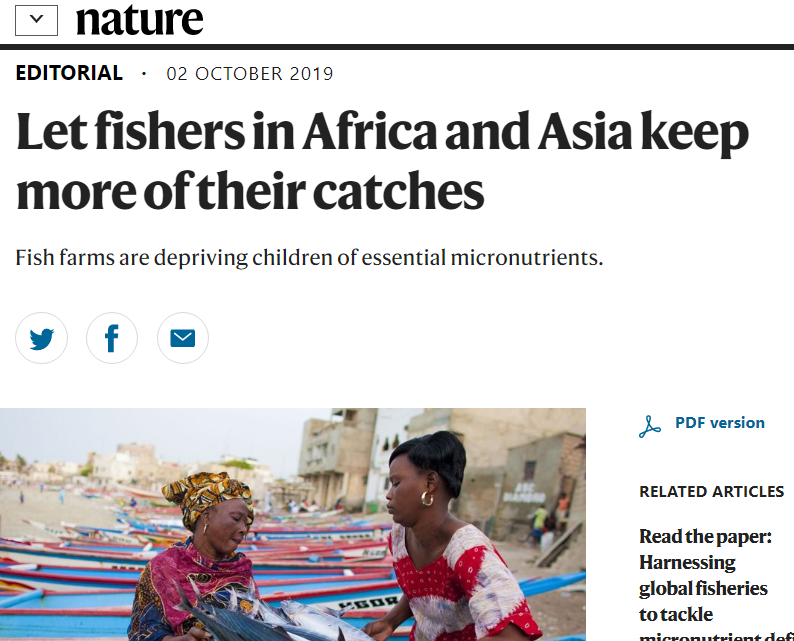 Vaxandi sjókvíaeldi á laxi veldur því að mikilvæg næring er tekin frá þjóðum sem mega alls ekki við frekari fæðuskorti.
Vaxandi sjókvíaeldi á laxi veldur því að mikilvæg næring er tekin frá þjóðum sem mega alls ekki við frekari fæðuskorti.
Í þessari frétt Nature er sagt frá því að eftirspurn fiskeldisfyritækja eftir fiskimjöl er svo mikil að stór hluti afla sem kemur úr sjó við Afríku fer nú í bræðslu og er svo seldur úr landi í stað þess að næra heimafólk.
Til að framleiða eina máltíð af eldislaxi þarf prótein sem myndi annars duga í að minnsta kostir þrjár máltíðir fyrir fólk. Í laxeldi er sem sagt verið að búa til lúxusmatvöru úr fæðuflokkum sem væri annars hægt að nýta til að seðja hungraðan heim.
Rétt er að minna á að laxeldi er bara lítill hluti af því fiskeldi sem stundað er í heiminum. Langstærsti hluti þess er eldi á fisktegundum sem lifa á fæði sem ekki myndi nýtast til manneldis, ólíkt því sem á við um afurðirnar sem notaðar eru til að framleiða fóður fyrir eldislaxinn.
Tímaritið Nature fjallar um þessa alvarlegu skuggahlið sjókvíaeldis:
„Economic stability was the great promise of industrial farming in replacing subsistence agriculture. Farming on a larger scale meant that families could produce enough both to feed their families and to sell on to local and international markets.
But as Christina Hicks at the University of Lancaster, UK, and her colleagues show in a paper in this week’s Nature, families — especially children — of artisanal fishers across Africa and Asia are suffering because of the demands of the aquaculture industry (C. C. Hicks et al. Nature 574, 95–98; 2019).
The problem, which is widely recognized, is that coastal communities are selling increasing amounts of their catch to aquaculture corporations. These fish are ground down to produce fishmeal, which is fed to farmed fish that are bought by wealthier consumers. But owing to expanding demand for farmed fish, more catches of fresh fish are being diverted away from local markets — and from the diets of children in coastal communities. …
Hicks and her team worked out the quantity of micronutrients obtained from catches of 367 species of fish in 43 countries, and then compared this with the prevalence of nutrition-linked diseases in communities within 100 kilometres of a coastline. They found that, in some countries, if fishers could hold back just a fraction of what they catch, that would be enough to provide families with healthier diets.
In Namibia, for example, 9% of fish caught in the country’s Exclusive Economic Zone would be sufficient to provide the iron needs of the entire coastal population. In Kiribati, 1% of catches would cover the necessary calcium for all of the country’s under-fives. In another 22 countries in Asia and West Africa, one-fifth or less of catches would fulfil the dietary needs of all under-fives.
These are troubling data, but producers and consumers can make a difference. Consumers of farmed fish especially can demand that producers find ways to improve the health and nutrition of coastal communities — for example by ensuring that fishers get to keep more of their catches. This isn’t a difficult request, and it could make the difference between a child’s life and her untimely death.“
